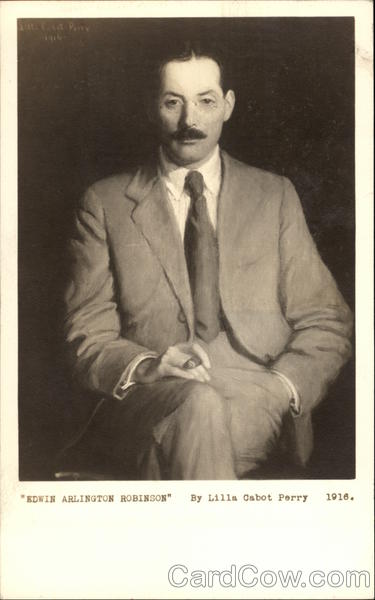

He tried farming and developed a close relationship with his brother’s wife Emma Robinson, who after her husband Herman’s death moved back to Gardiner with her children. With his father gone, Edwin became the man of the household. Now for the first time I seem to have something like a favorable opportunity and this winter I shall make a beginning. Writing has been my dream ever since I was old enough to lay a plan for an air castle. Robinson had returned to Gardiner by mid-1893. I feel that I have got comparatively little from my two years, but still, more than I could get in Gardiner if I lived a century.

Sometimes I try to imagine the state my mind would be in had I never come here, but I cannot. The thought seems a little queer, but it cannot be otherwise. I suppose this is the last letter I shall ever write you from Harvard. He wrote his friend Harry Smith on June 21, 1893: Though short, his stay in Cambridge included some of his most cherished experiences, and there he made his most lasting friendships. Edwin returned to Harvard for a second year, but it was to be his last one as a student there. Within the first fortnight of being there, The Harvard Advocate published Robinson’s “Ballade of a Ship.” He was even invited to meet with the editors, but when he returned he complained to his friend Mowry Saben, “I sat there among them, unable to say a word.” Robinson’s literary career had false-started.Įdwin’s father, Edward, died after Edwin’s first year at Harvard. His real desire was to get published in one of the Harvard literary journals. He did not aim to get all A’s as he wrote his friend Harry Smith, “B, and in that vicinity, is a very comfortable and safe place to hang.” He took classes in English, French, and Shakespeare, as well as one on Anglo-Saxon that he later dropped. Herman died impoverished in 1909 of tuberculosis at Boston City Hospital Robinson’s poem “Richard Cory” was thought by Emma (Herman’s wife) to refer to God and her husband.Īt the age of 21, Edwin entered Harvard University as a special student. Herman Robinson suffered business failures, became an alcoholic, and ended up estranged from his wife and children. The marriage was a great blow to Edwin’s pride, and during the wedding ceremony, February 12, 1890, the despondent poet stayed home and wrote a poem of protest, “Cortège”, the title of which refers to the train that took the newly married couple out of town to their new life in St. Emma thought highly of Edwin and encouraged his poetry, but he was deemed too young to be in realistic competition for her hand, which didn’t keep him from being rattled deeply by witnessing what he considered her being bamboozled by Herman’s charm and choosing shallowness over depth. The middle brother, Herman, a handsome and charismatic man, married the woman Edwin loved, Emma Löehen Shepherd. Robinson’s early struggles led many of his poems to have a dark pessimism and his stories to deal with “an American dream gone awry.” His eldest brother, Dean Robinson, was a doctor and had become addicted to laudanum while medicating himself for neuralgia. Throughout his life, he not only hated his given name, but also his family’s habit of calling him “Win.” As an adult, he always used the signature “E. He described his childhood in Maine as “stark and unhappy”: His parents (who had wanted a girl) did not name him until he was six months old, when they visited a holiday resort-whereupon, other vacationers decided that he should have a name and selected a man from Arlington, Massachusetts to draw a name out of a hat. Robinson was born in Head Tide, Lincoln County, Maine but his family moved to Gardiner, Maine in 1871. Edwin Arlington Robinson (December 22, 1869-April 6, 1935) was an American poet who won three Pulitzer Prizes for his work.


 0 kommentar(er)
0 kommentar(er)
